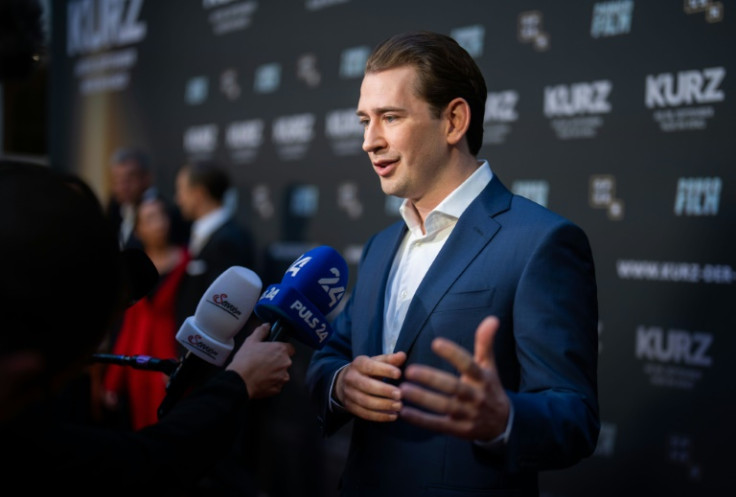
Austria's former chancellor Sebastian Kurz goes on trial this week for allegedly giving false testimony, the highest-profile figure implicated in wide-ranging corruption scandals that have rocked the EU member.
The case marks the first time in more than 30 years that a former chancellor has stood trial.
Once hailed as a "wunderkind" of Europe's conservatives, Kurz stepped down as chancellor in 2021 following a string of graft accusations, including spending public money for favourable media coverage.
It marked the spectacular fall of the charismatic hard-liner, who became the world's youngest democratically elected head of government in 2017 at the age of 31.
Kurz, together with two others, will go on trial on Wednesday for providing false testimony to a parliamentary committee probing numerous graft allegations.
Kurz, 37, has repeatedly dismissed the accusation levelled against him, saying he is keen to prove his innocence in court.
"Like many of the (corruption prosecutors') accusations, this one will turn out to be false," Kurz said in a statement in August.
Both Kurz and his lawyer declined to provide new comments when contacted by AFP.
He could face up to three years in jail if found guilty.
The case is being closely watched not only because of Kurz, but because prosecutors have so far failed to land convictions linked to the scandals that have rocked the Alpine country of nine million people since 2019.
The current case stems from a statement Kurz made in 2020 to a parliamentary committee probing corruption.
He is accused of having downplayed his influence in appointing the head of a state-run company.
Chat messages leaked to the media suggested that Kurz discussed the matter with the official, Thomas Schmid, who in one message says, "I'm so happy. I love my chancellor."
Co-accused with Kurz are his former chief of staff Bernhard Bonelli and Bettina Glatz-Kremsner, a former deputy head of Kurz's conservative People's Party (OeVP).
The presiding judge is expected to hear statements from the accused this week after which further trial dates will be set, according to a court spokeswoman.
Prosecutors have said they plan to call 18 witnesses, including Schmid, as well as Kurz's former finance minister and other high-profile officials.
About three quarters of cases involving false testimony have ended in convictions, according to justice ministry statistics.
The case poses a "high risk" above all for the prosecution, Austrian daily Kurier journalist Martin Gebhart said in a commentary.
"They can't afford to lose another glamorous case -- especially not this one," he added.
Former far-right leader Heinz-Christian Strache, who was vice-chancellor under Kurz until 2019, has been acquitted in two separate corruption cases.
Numerous probes are still pending.
In a separate case, prosecutors are investigating Kurz on suspicion of embezzling public funds to pay for polls which were skewed to boost his image and for favourable coverage to help his political rise.
After leaving politics, Kurz is now involved in numerous private international enterprises.
The graft allegations have also had vast implications for Austria's political landscape.
The OeVP continues to govern in a coalition with the Greens, but their approval ratings have plummeted, playing into the hands of the far-right Freedom Party (FPOe).
With a new leadership, the FPOe now has around 30 percent support, according to polls, ahead of elections next year.
The party has managed to overcome the so-called "Ibizagate" scandal that engulfed it in 2019 and brought down Kurz's first government.
The scandal involved a video, filmed secretly on the Spanish resort island of Ibiza, which showed then far-right leader Strache offering public contracts to a woman posing as a Russian oligarch's niece in exchange for campaign help.
© 2025 Latin Times. All rights reserved. Do not reproduce without permission.




